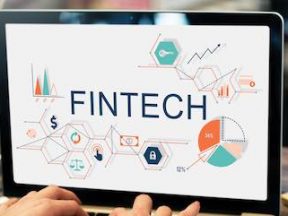The U.S. Securities and Exchange Commission, traditionally a staid and reactive agency, is taking a more vigorous approach in 2022, causing consternation and praise from various constituencies.
Formed a few years after the stock market crash of 1929, the SEC regulates the U.S. securities markets and protects investors by maintaining fair, orderly, and efficient markets and facilitating capital formation.
In the 20th century, that mission was clear. However, in this century the SEC has been challenged in fulfilling its role.
Both start-ups and established companies are pursuing new means of funding — from cryptocurrency to equity crowdfunding to special purpose acquisition companies. The main benefit for businesses of these unconventional mechanisms is that federal regulations do not burden them. The SEC is playing catchup in dealing with these often risky alternatives to fulfill its mission to protect investors.
… in this century the SEC has been challenged in fulfilling its role.
Many investors and financial analysts vehemently oppose any regulation of the new funding vehicles, arguing that it is the responsibility of investors to perform the proper due diligence and assess the risks before making any investment decisions. The SEC replies that risks are often opaque, especially when financial information is not available or not divulged to potential investors.
Gary Gensler, appointed chair of the SEC in April 2021, began his position with an ambitious agenda of policy changes. This year he is rolling them out. Following are a few of the major initiatives thus far.
SPACs
Special purpose acquisition companies are shell or blank-check companies without assets or operating history. They raise money via an IPO by acquiring or merging with a functional business. A SPAC does not have to identify a potential acquisition target when it forms.
When I first wrote about them in 2020, SPACs accounted for about one-third of IPOs. That has changed dramatically. In 2021 SPACs comprised over 75% of IPOs and almost 70% of deal value, according to Dealogic. In 2021, 613 SPAC listings raised $162.5 billion, up 95% from the amount raised in 2020.
SPACs operate under “safe harbor” rules (a legal provision in an SEC regulation that protects companies from legal liability when certain conditions are met). Since there is no financial history, SPACs can provide potential investors with projections in place of historical financials. The SEC recently proposed new policies requiring companies acquired through a SPAC to be subject to more stringent disclosure procedures relating to projections, conflicts of interest, and potential dilution of existing shares upon issuance of additional shares.
SPAC activity in Q1 2022 reached the lowest level since early 2020, with only 57 listings through April 14, according to SPACInsider. Post IPO performance is suffering among SPAC combinations initiated during the overheated valuation climate of the past two years.
Companies that have gone public via a SPAC have underperformed the S&P 500 by 80% since 2018, according to a new de-SPAC (a merger of the SPAC, the buying entity, and a target private business) Index launched by PitchBook. The index has posted a decline of 31.6% since 2018, compared with a gain of 50.4% for the S&P 500, according to PitchBook.
The SEC has proposed additional disclosures for the SPAC sponsor and its affiliates and promotors and for material conflicts of interest among them. The nature and amount of all compensation would also have to be disclosed. Underwriters of the original transaction would also be deemed to be underwriters in any de-SPAC transaction.
The SEC also wants the material terms and the effects of a proposed de-SPAC transaction made known. Participants would have to state whether the SPAC reasonably believes that the de-SPAC transaction and any related financings are fair to investors, the reasons for that opinion, and whether a fairness report or appraisal was obtained from an outside party.
Citigroup — the largest SPAC underwriter in 2021 — has temporarily paused SPAC IPO underwriting in response to the proposed SEC rules, according to Bloomberg.
Cryptocurrency
The unregulated nature of cryptocurrency is what users like about it. However, for these same reasons crypto is extremely volatile, susceptible to fraud, and without investor protections.
The SEC wants more oversight of cryptocurrency products and platforms that may be engaging in the sale and offering of securities. The agency determined that cryptocurrency exchanges have products that qualify as securities and should be registered under federal securities laws. The agency clarified that cryptocurrencies such as Bitcoin that replace traditional fiat currency are not securities.
Unlike commodities and other assets, securities require detailed disclosures to inform investors of potential risks. When determining if a digital asset is a security, the SEC considers whether the asset constitutes an investment contract.
Earlier this month, Chairman Gensler stated, “The SEC’s remit oversees the capital markets…. There’s no reason to treat the crypto market differently because different technology is used.”
Private Firms
While rules for private firms have not been issued in draft form, the SEC is considering a policy to demand more financial information and greater transparency from large private companies, according to The Wall Street Journal. The agency is increasingly concerned about the lack of oversight of private fundraising.
Private companies, especially unicorns (companies valued at over $1 billion), are staying private much longer with up to six rounds of funding. Previously it was rare for a company to receive more than three rounds. With the infusion of funds from wealthy individuals, venture capital funds, hedge funds, private equity firms, and sovereign wealth funds, companies with substantial revenue can avoid the regulatory disclosures that public companies must make.
Research firm Crunchbase reports 1,277 unicorns globally, with more than half in the U.S., including Stripe, Instacart, and SpaceX. They have a combined value of $4.4 trillion. The SEC believes this is an amount that demands more disclosure.




